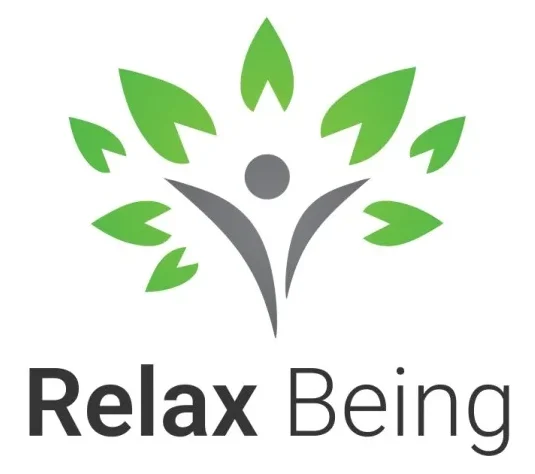
The Mental Health Benefits of Quiet Time
Quiet Time and Mental Health
In today’s world filled with constant noise and endless activity, finding moments of silence feels like a luxury, but it’s truly a necessity for mental health. When I first started embracing quiet time, I realized it wasn’t about escaping life it was about returning to it with more clarity. Even a few minutes of purposeful silence each day can help calm the mind and rejuvenate the body. Through meditation and mindfulness, I discovered how these small pauses could promote balance and well-being without needing elaborate rituals or long retreats.
This article explores simple ways of integrating stillness into your daily life. When practiced regularly, Quiet time can foster greater emotional intelligence, helping you understand your feelings instead of reacting to them. It deepens your connection with oneself, allowing you to listen to your inner rhythm instead of the world’s rush. Over time, this habit transforms from a quiet moment into a grounding practice one that truly highlights the benefits of slowing down and reconnecting with what matters most.
Understanding the Importance of Quiet Time
Gently reduces stress and anxiety while helping the brain to process information more clearly. Taking a break from noise and distractions improves mental clarity, focus, and enhances emotional regulation. During moments of silence, the nervous system gets a chance to reset, helping the mind foster creativity and self-awareness.
Science even shows that it can promote the development of new cells, supporting memory and learning. Personally, incorporating brief moments of stillness into my busy day has helped boost overall mental and physical well-being. It’s a simple act with profound results.
- Schedule short pauses: Add 5–10 minutes of quiet time during your busy day to let your brain rest and reset.
- Reduce constant stimulation: Turn off notifications or step away from screens to allow mental clarity to surface.
- Practice silence: Sit calmly, breathe, and let your nervous system relax. It naturally reduces stress and anxiety.
- Encourage self-awareness: Use this time to reflect or journal; it fosters creativity and emotional balance.
What are the Benefits of Quiet Time?
A busy life, quiet time offers incredible benefits for both adults and children, nurturing development on multiple levels mentally and emotionally. From personal experience, spending quiet moments in an uninterrupted environment allows me to concentrate deeply, leading to improved focus, sharper attention, and a calm mental reset.
For kids, this same serene setting can prevent meltdowns and ease feelings of overwhelm, giving them an opportunity to practice mindfulness and emotional regulation. Through simple mindfulness activities like deep breathing or reflective thinking, we learn to recognize and process emotions more constructively. This enhanced awareness aids in building self-control and overall well-being, enabling a better, more balanced life, ultimately helping and leading us toward a peaceful, grounded state of mind.
- Create an uninterrupted environment and find a calm space free from noise or screens.
- Practice mindfulness activities daily like deep breathing or gentle reflection.
- Encourage children to enjoy quiet moments through drawing or reading.
- Recognize emotions constructively and use this time for reflective thinking and mental reset.
5 Ways To Find Time For Silence
In our busy lives, finding time for silence is more than a luxury; it’s essential for mental wellbeing. When I first made it my aim to embark on a journey toward inner calm, I discovered that isolation didn’t mean loneliness; it meant embracing being alone and finding small pockets of peace in my day.
These moments allow you to recharge, reconnect, and remind yourself of what truly matters. Here are some practical tips that helped me carve out quiet space: wake a few minutes earlier, take mindful walks, or pause before bed just to breathe. Each small habit will refresh your mind and gradually change your life, one peaceful moment at a time.
1. Build Silence into Your Schedule
Your daily routine, it’s easy to overlook quiet time, especially when your calendar is full of important meetings after me-tings. I once realized over morning coffee that even a few minutes of time dedicated to embracing stillness could make a big difference in how my mind felt before bed.
When you learn how to add a little bit of quiet into your schedule, it starts to reset your thoughts and help you find balance during the rush of the day. Whether it’s setting time aside before work or for your evening wind-down, treat silence as something that truly works for you and once you stick to it, you’ll find that adding this moment of peace helps you make your days calmer and more meaningful.
- Add quiet time to your calendar like an important meeting.
- Stick to a time dedicated slot, even if it’s just a few minutes.
- Use morning coffee or moments before bed to embrace stillness and reset your mind.
2. Create a Quiet Space at Home
Creating a quiet space at home is like making a secret spot where the world slows down and you can simply breathe. I turned a cozy corner near the window into my little sanctuary with just a comfy chair, my favorite blanket, and a book waiting for me.
This place became my pact with myself, a promise to pause and find peace beyond daily noise and distractions. When life feels too loud, retreating there helps me reconnect with calm and reminds me that silence doesn’t demand time; it creates it.
- Choose a spot where you feel calm and undisturbed.
- Remove distractions like phones or background noise.
- Personalize the space with a blanket, book, or anything that makes it feel like your sanctuary.
3. Set Boundaries with Others
Many people today live in constant noise and forget how precious a little time alone can be. I once realized I didn’t know how much I needed that undisturbed space until I started treating my moments of silence as sacred.
To truly embrace silence, you must set boundaries and gently help others understand that your quiet time isn’t selfish, it’s necessary. When you give yourself space, you also respect your relationship with peace. A simple conversation about why these boundaries matter can effectively make others more mindful and allow you to embrace calmness as a series of daily habits.
- Communicate clearly: Tell others when you’ll be taking your quiet time alone so they understand and respect it.
- Be consistent: Regularly set your boundaries until they become a natural part of your relationship with silence.
- Remind yourself: You deserve these precious moments to embrace silence and reconnect with yourself.
4. Incorporate Silence into Your Meditation Practice
The space with music or guided words, unaware of the power of silence as a true anchor to the present moment. Over time, I discovered that silence is not empty, it’s full of awareness, stillness, and calmness that connect you to your inner peace.
By paying attention to the breath, body, and subtle sensations, you can ground yourself deeply in the importance of simply being. Even a few minutes of quiet practice can become your own Daily Calm, a moment to focus, explore yourself, and let the backdrop of life fade into soft presence. Through this mindful pause, mindfulness becomes more than a habit it transforms into a way of living with clarity and grace.
- Start small: Dedicate 5 minutes daily to pure silence during meditation and notice your presence deepen.
- Use your breath and body as an anchor to bring focus back when the mind drifts.
- Treat each moment of stillness as an opportunity to reconnect with your inner peace and awareness.
5. Adapt the Practice to Your Lifestyle
In a world filled with noise, quiet time is not a luxury, it’s a realistic practice that fits even into the most hectic schedule. I once learned from Jeff Warren during a Daily Trip session that you don’t need to escape life to find Stillness; you just need to start small.
Take a minute in your day to simply turn off your computer, sit in stillness, and do nothing. This small pause can have a positive impact on your focus and energy. The more you find moments to be comfortable with silence, the more you’ll enjoy the gentle calm it brings to your busy life.
- Start small: Begin with just one quiet minute and slowly extend it.
- Turn off distractions: Close your computer or phone to embrace stillness.
- Find comfort in nothing: Let yourself simply be, without doing or achieving.
How Does Quiet Time Affect Mental Health?
Spending quiet time is more than just a break, it’s a healing space for your mental health. In today’s noisy world, moments of silence allow the mind to rest, rejuvenate, and find focus. Research shows that quiet environments can lower blood pressure, reduce cortisol levels, and boost cardiovascular health, all of which alleviate stress, anxiety, and depression.
I’ve personally felt how even 10 minutes of solitude or meditation can bring a calming effect, restore mental clarity, and enhance creativity. When we minimize distractions, our brain can process information, organize learned concepts, and gain a deeper understanding of our emotions.
This quiet state promotes mindfulness, helping us think clearly, improve decision-making, and achieve emotional regulation. Through personal reflection and self-discovery, we embrace a peaceful mind, rejuvenation, and emotional wellness, proving that quiet time plays a substantial role in promoting well-being and restoring focus.
- Integrate silence into your daily routines starting with short meditation or mindful solitude sessions.
- Limit exposure to noise and screens; create sensory deprivation moments to stimulate brain growth and health improvement.
- Join silent retreats or peaceful environments that encourage reflection and emotional balance.
- Practice mindfulness to stay present, calm racing thoughts, and promote relaxation and emotional wellness.
How can Quiet Time Promote Personal Growth and Creativity?
In a world full of competing distractions, quiet time offers a rare opportunity for personal growth and creativity to truly bloom. When individuals step away from constant noise and create a calm environment, they can self-reflect and process thoughts and emotions more effectively.
These moments of silence allow the mind to wander freely, nurturing creativity and building self-awareness through meditation or reflective journaling. As the brain begins to recharge, it leads to enhanced mental clarity, better decision-making, and stronger emotional regulation. By regularly engaging in regular quiet practices, such as sitting in a peaceful garden or writing about personal experiences, one can assess their feelings more thoughtfully and gain greater insights into oneself. This silence becomes an invaluable tool in nurturing creativity, fostering personal development, and enhancing overall well-being, laying the groundwork for sustained creative endeavors.
- Integrate peaceful moments into your routine even five minutes of stillness can boost clarity and focus.
- Engage in self-reflection through meditation or reflective journaling to understand your emotions better.
- Create a quiet environment that supports stress reduction and encourages your creativity to bloom without interference.
Embracing Quiet Time for a Healthier Mind and Body
In our daily lives, filled with endless noise and pressures of modern living, finding quiet time has become an essential antidote to chaos. Through my own experience, I’ve learned that embracing even small moments of silence can be a critical component in maintaining both mental health and physical health. By prioritizing this sacred space, individuals can reconnect with their thoughts, regain mental clarity, and restore balance. It’s fascinating how simply practicing mindfulness during these peaceful breaks can improve focus, enhance self-awareness, and foster creativity helping us to feel more grounded and in control of our emotions.
Quiet time does more than calm the mind; it strengthens communities by promoting empathy, compassion, and understanding. When we learn to listen inwardly, we naturally extend patience outwardly. This process helps unlock personal growth, boost resilience, and lead to a more fulfilling existence rooted in peace and well-being. The benefits of embracing the power of silence reach beyond relaxation; they shape who we are becoming healthier, wiser, and more connected to ourselves and the world around us

